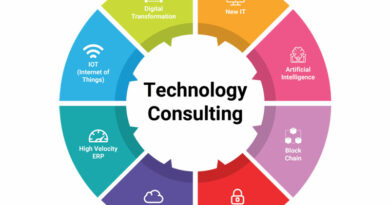From Data Silos to Integration: The Role of Snowflake Consulting Services
In the modern business environment, data has become one of the most valuable assets for organizations. However, many businesses struggle to leverage its full potential due to fragmented data systems, often referred to as data silos. These silos hinder collaboration, obscure insights, and lead to inefficiencies. Snowflake’s cloud data platform provides a solution by enabling seamless data integration and unification. Snowflake Consulting Services play a pivotal role in helping businesses transition from fragmented silos to a fully integrated data ecosystem, unlocking the true value of their data.
Understanding Data Silos and Their Challenges
What Are Data Silos?
Data silos occur when data is isolated in separate systems or departments, preventing it from being easily shared or accessed across the organization. This fragmentation can happen due to:
- Use of incompatible data systems.
- Organizational barriers between teams or departments.
- Lack of a centralized data management strategy.
Challenges of Data Silos
Data silos pose several challenges to businesses, including:
- Reduced Efficiency: Isolated data systems force teams to spend significant time consolidating and reconciling information.
- Inconsistent Insights: Lack of unified data results in conflicting insights, leading to poor decision-making.
- Limited Collaboration: Teams cannot collaborate effectively without shared access to data.
- Higher Costs: Maintaining multiple siloed systems is resource-intensive and costly.
- Compliance Risks: Fragmented data makes it difficult to enforce consistent data governance and compliance policies.
Eliminating these silos is critical for organizations looking to remain competitive, and Snowflake offers an ideal platform for achieving data integration.
How Snowflake Addresses Data Silos
Snowflake’s cloud-native architecture is designed to eliminate data silos and enable seamless data integration. Its key features include:
1. Centralized Data Storage
Snowflake provides a single platform for storing structured, semi-structured, and unstructured data. By consolidating all data in one location, organizations eliminate the need for multiple, disconnected systems.
2. Cross-Platform Integration
Snowflake integrates with various data sources, including cloud applications, on-premise systems, and third-party tools. This ensures that all data, regardless of origin, is accessible and usable within a unified platform.
3. Real-Time Data Sharing
Snowflake’s secure data sharing capabilities allow organizations to share live data across teams, partners, and customers without creating duplicates, reducing inefficiencies and ensuring up-to-date information is always available.
4. Scalability
With its dynamic scaling capabilities, Snowflake can handle growing data volumes and user demands, ensuring performance remains consistent regardless of size or complexity.
While Snowflake provides the technical foundation, consulting services ensure that organizations can implement and optimize these capabilities effectively.
The Role of Snowflake Consulting Services in Data Integration
Snowflake consulting services are critical in guiding businesses through the process of breaking down data silos and achieving seamless integration. Here’s how consultants make the transition successful:
1. Assessment and Strategy Development
Consultants begin by assessing the organization’s current data landscape, identifying silos, and understanding business goals. They then develop a tailored data integration strategy that aligns with organizational objectives and priorities.
2. Data Migration
Migrating data from legacy systems to Snowflake can be complex. Consultants manage the entire migration process, ensuring data accuracy, security, and minimal disruption to operations.
3. Architectural Design
A well-designed architecture is crucial for effective data integration. Snowflake consultants design scalable and efficient data architectures that consolidate disparate data sources into a unified system.
4. Integration with Existing Tools
Modern businesses use a variety of analytics, reporting, and operational tools. Snowflake consulting services ensure seamless integration with these tools, enabling a smooth transition and uninterrupted workflows.
5. Data Governance and Quality
Consultants implement robust data governance frameworks to ensure data consistency, security, and compliance. This includes defining data quality standards and implementing automated tools to maintain them.
6. Training and Support
To ensure long-term success, consultants provide training and ongoing support, empowering internal teams to effectively use Snowflake and maintain a unified data ecosystem.
Benefits of Moving from Data Silos to Integration with Snowflake Consulting Services
1. Improved Collaboration
Integrated data systems enable teams to access and share information seamlessly, fostering collaboration across departments and driving innovation.
2. Faster Decision-Making
With all data consolidated in a single platform, decision-makers can access accurate, real-time insights, leading to quicker and more informed decisions.
3. Cost Savings
Eliminating multiple siloed systems reduces infrastructure and maintenance costs, while Snowflake’s pay-as-you-go model ensures cost efficiency.
4. Enhanced Customer Experiences
Unified data provides a 360-degree view of customers, enabling personalized experiences and improved service delivery.
5. Compliance and Risk Management
A centralized data platform with consistent governance ensures compliance with industry regulations and reduces the risk of data breaches.
Real-World Applications of Snowflake Consulting in Data Integration
1. Retail Industry
A global retailer with disparate inventory and customer data systems worked with Snowflake consultants to integrate all data into a unified platform. This enabled real-time inventory tracking, personalized marketing, and improved supply chain efficiency.
2. Healthcare Sector
A healthcare provider struggling with fragmented patient records leveraged Snowflake consulting services to create a centralized data hub. This streamlined patient care processes and enhanced compliance with HIPAA regulations.
3. Financial Services
A financial institution facing inefficiencies in transaction data management partnered with Snowflake consultants to consolidate data across departments. This resulted in faster fraud detection and improved reporting accuracy.
Choosing the Right Snowflake Consulting Partner
Selecting the right consulting partner is crucial for successful data integration. Consider the following factors:
- Proven Expertise: Look for consultants with certified Snowflake professionals and a strong track record of successful projects.
- Industry Experience: Choose a partner with experience in your industry to address unique challenges.
- Comprehensive Services: Ensure the provider offers end-to-end services, from strategy and migration to ongoing support.
- Collaborative Approach: A good consulting partner will work closely with your team, prioritizing your business goals and needs.
Conclusion: Breaking Down Barriers with Snowflake Consulting
Data silos are a significant obstacle to innovation and growth, but they don’t have to be permanent. With the right approach, businesses can transition to an integrated data ecosystem that unlocks new opportunities and drives efficiency. Snowflake’s advanced platform provides the technical foundation, while consulting services offer the expertise and guidance needed for a successful transformation.
By partnering with Snowflake consulting experts, organizations can break down silos, improve collaboration, and gain a competitive edge in their industries. Whether it’s through tailored strategies, seamless migrations, or robust governance frameworks, Snowflake consulting services empower businesses to maximize the value of their data and achieve their long-term goals.




